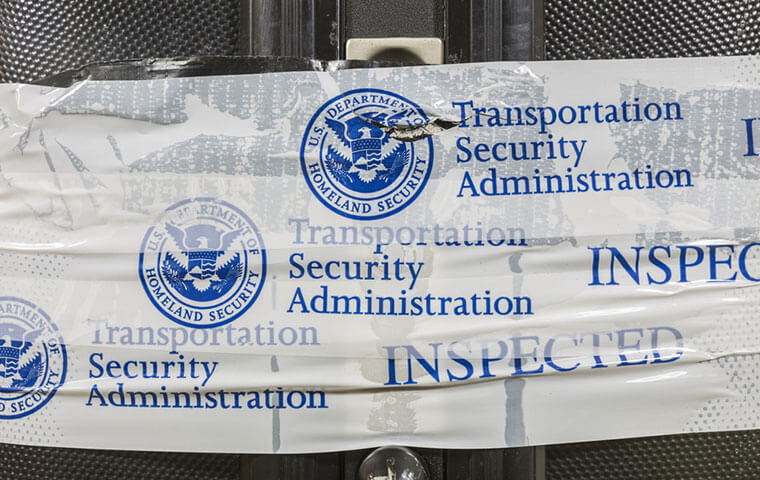 AFGE has filed a lawsuit against DHS arguing that the decision to rescind collective bargaining was an act of retaliation and in violation of First and Fifth Amendment rights. Image: trekandshoot/Shutterstock.com
By: FEDweek Staff
AFGE has filed a lawsuit against DHS arguing that the decision to rescind collective bargaining was an act of retaliation and in violation of First and Fifth Amendment rights. Image: trekandshoot/Shutterstock.com
By: FEDweek StaffThe AFGE has stressed that it continues to have a role in representing TSA screeners even in the wake of a Trump administration order terminating their contract and revoking the union’s bargaining rights, saying it “will continue to serve as representatives for employees facing disciplinary actions/adverse actions.”
It said those could include, for example, EEO, workers’ compensation, and health and safety complaints; grievances; appeals charging whistleblower retaliation and other prohibited personnel practices; and unfair labor practice charges such as retaliation for union activities.
The order essentially returned the agency-union relationship to that of the TSA’s first years after its creation following the 9-11 attacks, until the Obama administration voluntarily agreed to allow bargaining under terms of a law making that discretionary for the agency.
The AFGE has filed a lawsuit against DHS, the TSA’s parent department, arguing that the decision was an act of retaliation against the union for advocating on behalf of TSA employees in violation of the First Amendment and that the decision stripped property rights from those employees without due process in violation of the Fifth Amendment.
Bills have been introduced in both the House and Senate to restore the bargaining rights but face steep odds against enactment, with Republicans in control of both chambers and the White House.
Senate Eyes Vote to Pay Federal Employees Working Unpaid
Series of Bills Offered to Address Shutdown’s Impact on Employees
Public Starting to Feel Impact of Shutdown, Survey Shows
OPM Details Coverage Changes, Plan Dropouts for FEHB/PSHB in 2026
Does My FEHB/PSHB Plan Stack Up? Here’s How to Tell
2025 TSP Rollercoaster and the G Fund Merry-go-Round
See also,
TSP Takes Step toward Upcoming In-Plan Roth Conversions
5 Steps to Protect Your Federal Job During the Shutdown
Over 30K TSP Accounts Have Crossed the Million Mark in 2025

